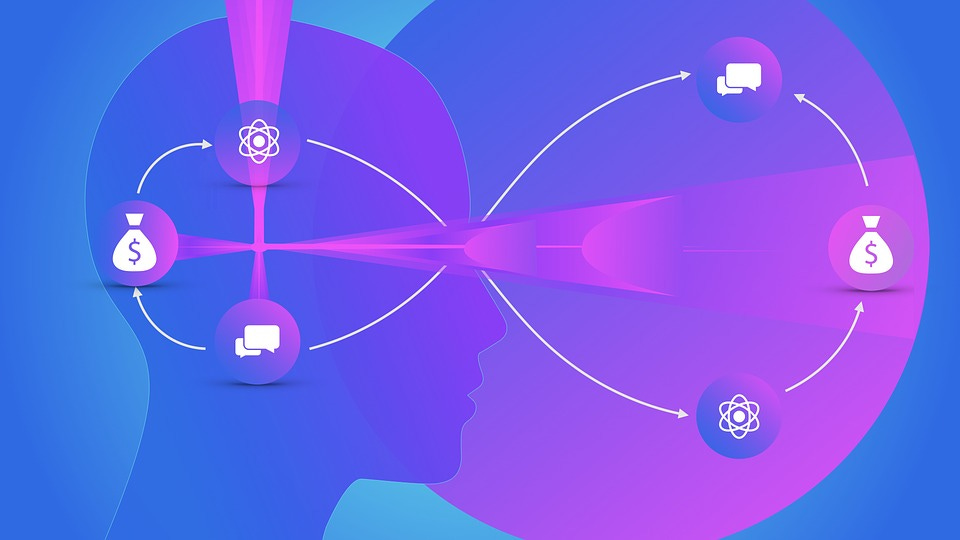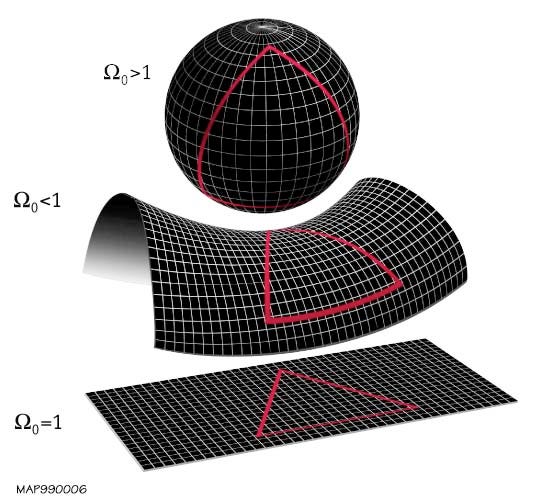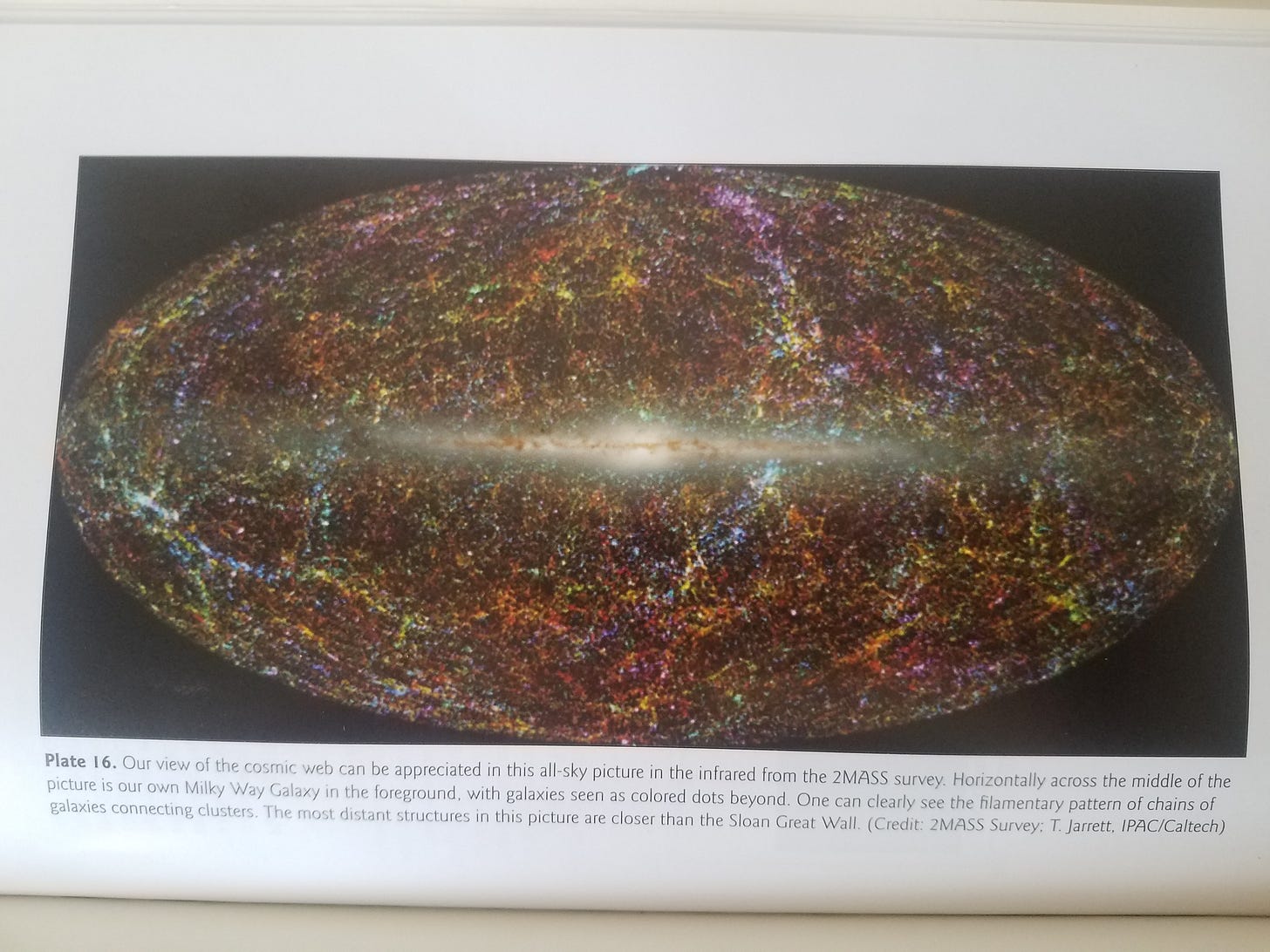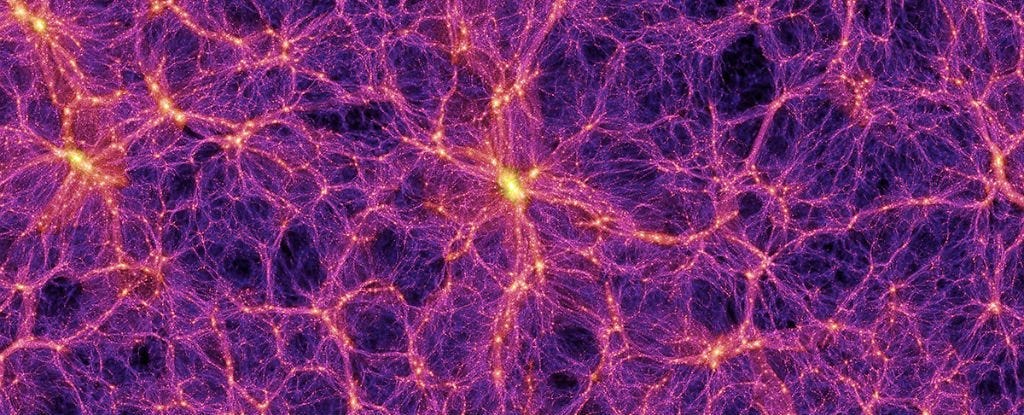"Our Shared Reality" Reading List
Post on books dealing with the past, present, & future of "Our Shared Reality"
Reading Time: 10-15 minutes
Table of Contents:
Our Shared Reality—
The Past (Our Mathematical Universe)
The Present (The Universe in Your Hand & The Cosmic Web)
The Future (Decoding Reality)
Supplemental Books
Whats Next?
Our Shared Reality—
Abstract: I hope the below book suggestions start a chain reaction of interesting and compelling questions inside of your skull.
This reading list is for anyone and everyone who is interested in the beautiful multiplicity of reality, but even more so - someone who is interested in finding out what we “as a collective intelligence” have figured out about the trippy nature of our all encompassing environment.
I take you through the past, present, and future of our descriptions of our reality in four books & six supplemental book suggestions (for a total of 10 for all those math wizards out there) to keep your curiosity going well after reading.

"What is this?!" exclaimed the curious child picking up a small & slimy creature with many legs. Curiosity had won the day, and hesitancy to grossness & close-mindedness had lost. I imagine myself as that child and now as an adult asking increasingly more questions similar to: What is this?
What is our reality? What is existence? Is experience different for different creatures or thinking beings? Is it different in the past as it is now in the present? Will it change in the future?
As the famed physicist Richard Feynman once said: "I was born not knowing and have had only a little time to change that here and there."
Below is a sampling of books to get up to speed on what we know about our shared reality through a rather scientific lens. In tumultuous times, it is always beneficial to take a step back and re-examine the totality of experience, especially the foundation of our shared value systems, that is ultimately based on "Our Shared Reality."
The Past
Our Mathematical Universe - Max Tegmark

This book changed my perspective on what Reality is more than any other. The author, an MIT physics professor, takes the reader on a journey through our environment through the lens of mathematics.
The name of the book gives it away fairly easy. "Our quest to understand reality can be summed up in two parts: the grand challenge for cognitive science is to link our consensus reality with our internal reality, and the grand challenge for physics is to link our consensus reality with our external reality."
However, the pure abstraction conclusion that is posited from a universe that is purely mathematics is a hypothesis that we cannot even really argue against because of the paradoxical logic it would take to overturn.
Tegmark explains: "If someone wishes to avoid accepting the Mathematical Universe Hypothesis, they can do so by rejecting the External Reality Hypothesis that there's an external reality completely independent of us humans."

Tegmark goes further with his praise for the possibility that us little humans have even the slightest idea of what is going on: "We've repeatedly underestimated not only the size of our cosmos, but also the power of our human mind to understand it." The book begins with that exact journey that humanity has taken to try and answer the ultimate question," What is Reality?" Tegmark's answer is simple and straight forward.
"The Mathematical Universe Hypothesis is: at the bottom level, reality is a mathematical structure. It's parts have no intrinsic properties at all! The external physical reality is therefore more than the sum of its parts, in the sense that it can have many interesting properties while its parts have no intrinsic properties at all."
He goes on to say, "Many mathematical structures - the dodecahedron, for example - lack the complexity to support any kid of self-aware substructures, so it's likely that the level IV multiverse resembles a vast and mostly uninhabitable desert, with life confined to rare oases, bio-friendly mathematical structures such as the one we inhabit."
Watch The Royal Institution lecture on “Our Mathematical Universe”
The main book theme is obvious - we live in a universe of mathematics. However, the larger, and dare I say more important, theme is that we are infinitely lucky that we can even ask these questions. Also, even having the capabilities to actually start, if only partially, answer that question. Tegmark exclaims when someone says, "I can't believe I'm just a heap of atoms! I object to the use of the word just: the elaborate space-time braid that corresponds to their mind is, hands down, the most beautifully complex pattern we've every encountered in our Universe."
The Present
The Universe in Your Hand - Christophe Galfard

Ever heard of Christophe Galfard? Neither had I. That was before I opened the front cover to the introductory page of the above book, that stated - Christophe Glafard was Professor Hawking's graduate student. (Yes, THE GENIUS PROFESSOR STEPHEN HAWKING, the hero of the sciences and resident expert on black holes Stephen Hawking).
Immediately you know you are in the presence of wisdom. The foreword promises two things: only one equation in the entire text (E=MC^2) and to not leave anyone behind. That means even you dear reader.. Christophe has your back!

The text begins with a pilgrimage to the beginning. The beginning of what exactly? Well everything. Matter, Space, Time, Stars, Planets, Moons. Solar Systems galore. In the end, you come away with plenty of info about our surroundings, but also the harrowing reality of our desolate location amongst the cosmos.
Galfard sets the tone, "The Milky Way is but an island of stars lost in a dark immensity of a far larger scale." Phew…You might want to sit down for the rest of this. But just as soon as the author takes you down, he brings you back up with this gut punch of personal optimism,
"And between you and me, wouldn't it be a shame if all the beauty that is hidden out there were left unseen, or unexplored or - worse still - left only for other intelligent species to see from their own far away cosmic perspective."
And this is only in the first 50 pages y'all, the next 372 keep pace.
Galfard explains how we got to our current understanding of our environment-at-large through a history of science that traverses math, theories, principles, and eventual predictions with experimentation. The next stops cover the expansiveness between the macroscopic realms of the fabric of space with the incredibly hard to comprehend minuteness of quantum mechanics through the link that is the lens of "time." By the end of the book, you have journeyed through all that reality has to offer in a way that is conversationally communicated.
This visualization companion of the book by Chaosmos Space is incredible & mesmerizing.
Not stopping at our current understanding, the author brilliantly expands your mind on the best speculative theories about the future of the universe that challenge even our present framework. Mind bending is an understatement after Galfard explains the limits of modern knowledge, "what lies beyond the Planck scale cannot be probed."
But we may be wrong about that as well. Science is not founded on discoveries, but theories that eventually were disproved until they progressed towards a/the TRUTH. Galfard finishes the book, "And thanks to these wrongs, we can peer into the unknown…Wrongs are needed to find a right, to move forward."
The Cosmic Web - J. Richard Gott

This book opened up my eyes to the incredible history of astronomy and astrophysics, as well as the sheer enormity of the universe while trying to visualize “the cosmic web.” J. Richard Gott paints a clear picture of when we started looking at the heavens all the way to him and a colleague being in the Guinness Book of World Records for their measurements of the - Sloan Great Wall - one of the largest structures in the universe. (That record now belongs to the Hercules-Corona Borealis Great Wall.)

The subsequent 200+ pages offer a glimpse into, "how the largest structures in the universe rose as the greatly expanded fossil remnants of microscopic random fluctuations in he early universe produced by inflation in the universe's first 10^-35 seconds."

Gott takes the reader through the history of discovering new insights like dark matter, and how utilizing any new data into the most recent explanations pushes us closer to what really happened for us to get to this present point in time/universe. "…nucleosynthesis in the early universe would have left us today with an amount of deuterium (heavy hydrogen) less than what we observe. Deuterium is fragile and is burned up rather than made in stars, so you can't make it later. You need to make the correct amount in the early universe."
“Wait long enough and a high-density inflating bubble will occur that will lead to new universes like ours, where the whole process starts over. That’s the standard picture for the future of our universe.”

Gott doesn't believe that we live in a static, never changing universe because that isn't what we see when we look with our telescopes.
"Without fluctuations, the universe would remain perfectly uniform and no galaxies or stars would ever form. WE WOULD NOT BE HERE. We needed a uniform universe PLUS small fluctuations."
There is obviously more to the text than the above, as the author goes through every iteration of the possible topology (makeup) of the universe, and how we have finally come to the "most" accurate picture of what our universe looks like: A Cosmic Web.

And apparently we are still only at the beginning of our observations, "as our causal horizon expands outward during this decelerating phase, we might ultimately be able to see roughly 10^1,800 times as many structures in the cosmic web as we can observe today!"
“Thus, new ordinary observers are being created at a higher rate than new intelligent creatures formed by quantum tunneling, so you should not be surprised to be one of the ordinary observers. Our universe might well be descended from a baby universe created in a previous low-density accelerating universe.”
The Future
Decoding Reality - Vlatko Vedral

The author opens up the prologue with not just any question, but the granddaddy of all questions that each human asks: "is the reality that we see around us just made up from a seemingly random collection of unrelated rules and events or is there a common underlying thread from which these all derive?"
There have been numerous stabs taken at this fundamental question through the ages by both religion & science. So far, we have basically gotten reality down to two sets: matter and energy. Vedral's main thesis of the book is that information, specifically quantum information, is actually the most fundamental aspect of our collective reality.

The book travels through the ages telling of the ancient Greek postulates of the universe all the way to Claude Shannon's information theory which answers the question of 'How to maximize the capacity of communication between two users' and is the bedrock for our modern world of technology.
The basic crutch being, "the information content of an event is proportional to the log of its inverse probability of occurrence: I = log*1/p." Only two initial parameters are needed to discuss information: "1) the existence of events [something needs to be happening]; 2) ability to calculate the probability of events happening." You can thus apply information theory to ANY EVENT, and is the basis of the author's argument that underlying every process we see in Nature is information.
Concepts from classical physics like the laws of thermodynamics are succinctly upended by the quantum world and everything that entails: superposition, qubits, randomness, and creation ex nihlo or 'something out of nothing.' Mutual information for understanding the Universe is basically everywhere due to the fact that everything interacts with everything else to some degree/level. Vedral explains in his last chapter after diving into the intricacies of how/why that is through the eyes of boolien logic, von nueman's arguments, and David Deutsch's "P.
In going through all of the levels, we come to the conclusion that - “We can consider our entire universe as one quantum computer…Our reality is that which is the sum total of all the observations and facts humanity has gathered so far.”
We affect our reality, in a reinforcing feedback loop if you will, by better understanding how to look for and compress the information the Universe produces by exploring our reality. But if that is true, by the observance of random quantum events into a distinct piece of information, then it is as if we create out own destiny.
Which is TRIPPY AND MATRIXY AF. This peach of a paragraph sums it up perfectly,
"Within our reality everything exists through an interconnected web of relationships and the building blocks of this web are bits of information. We process, synthesize, and observe this information in order to construct the reality around us…The laws of Nature are information about information and outside of it there is just darkness."
In the beginning of the text, we said that religion and science have tried THE question of the nature of our reality. The just over 200 pages of Decoding Reality does a fantastic job of describing the same information about information many different ways in the form of analogies, metaphors, and all types of hypotheticals. Almost all of the book is dedicated to the scientific way, however as the author concludes: "the ideas (religion/science) that we use are not so different from one another."
That is why it is fitting, Vedral ends the book with a quote from the 2500 year old piece of wisdom that is the Tao Te Ching showing religion & science have merged to a point of agreement on the nature of reality: "These two spring from the same source but differ in name; this appears as darkness. Darkness within darkness. The gate to all mystery."
Supplemental books:
What’s Next?
If you enjoyed this post, please share to other potential eclectic spacewalkers, consider subscribing or gift a subscription, or connect with us on social media to continue the conversation! Also, I am an advocate of Bitcoin. My address is on my About.Me page if you are feeling extra curious.
Subscribe to Substack Newsletter
Listen to all podcasts on Anchor
Follow Eclectic Spacewalk on Twitter
Thank You for your time. Until next week, Ad Astra!


